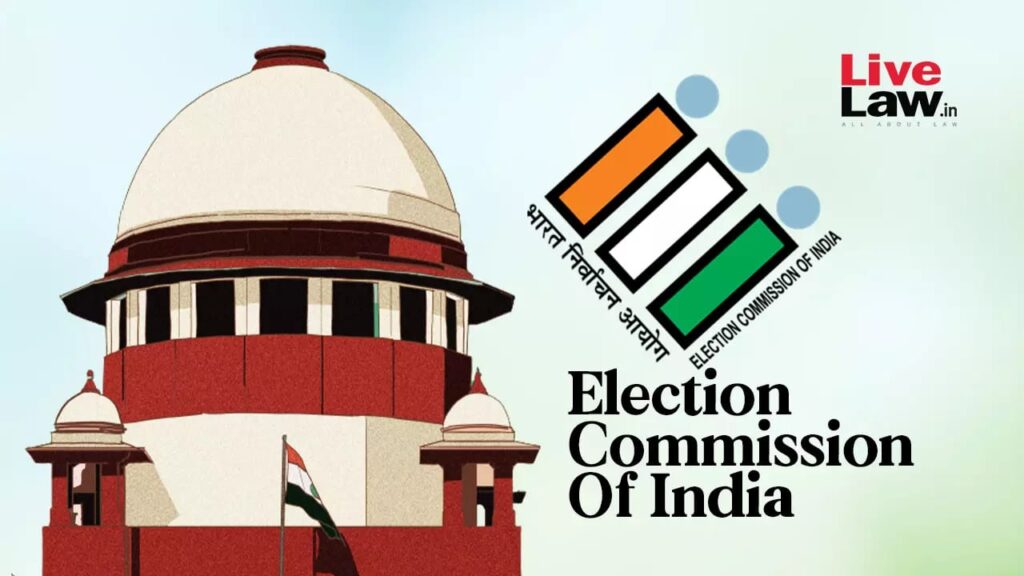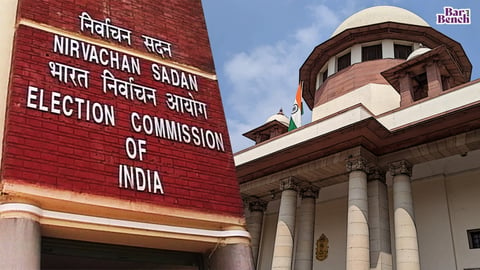The Election Commission: Safeguarding Democracy and Ensuring Fair Elections
Introduction
Elections are the cornerstone of democratic governance. They serve as the mechanism through which the will of the people is expressed and translate into governmental authority. In this context, the role of the Election Commission—an independent body tasked with overseeing electoral processes—becomes crucial. The Election Commission ensures that elections are conducted freely, fairly, and transparently, fostering public confidence in the democratic system.
This blog delves into the structure, functions, and challenges faced by Election Commissions worldwide, with a particular focus on the Election Commission of India (ECI), the United States Election Commission (or equivalent bodies), and how these organizations shape the democratic process.
What is an Election Commission?
An Election Commission is an autonomous body or commission established by a government or constitution to oversee elections and ensure they are conducted in a free and fair manner. The commission is responsible for the organization, administration, and supervision of elections, whether they are for national, regional, or local positions. Its main objectives include the preparation of voter lists, the conduct of voting, the counting of ballots, and the declaration of results.
Election Commissions are designed to be independent from political influence to guarantee the credibility and legitimacy of elections. They function to avoid electoral malpractice, fraud, and bias, ensuring that every citizen has equal access to participate in the democratic process.
The Structure of Election Commissions
The structure and functioning of Election Commissions vary by country, but the general principles remain similar. Most Election Commissions are comprised of commissioners or officials who are appointed for fixed terms to prevent political interference. For instance:
- India’s Election Commission: In India, the Election Commission is a constitutional body responsible for the conduct of elections to the Lok Sabha (House of the People), Rajya Sabha (Council of States), and State Legislative Assemblies. The Election Commission of India is headed by a Chief Election Commissioner (CEC) and two Election Commissioners, all of whom are appointed by the President of India. They are appointed for six-year terms or until the age of 65, whichever is earlier.
- United States Election Bodies: While the U.S. does not have a single, national Election Commission, the Federal Election Commission (FEC) oversees federal elections and enforces campaign finance laws. On a state level, each U.S. state has its own election authority, which handles state elections, voter registration, and ballot counting. These bodies work together to ensure that elections meet federal standards.
- Other Global Examples: Countries like the United Kingdom, Australia, and Canada have independent election commissions that oversee elections for national parliaments and local governments. Each body has its own specific mandate, but all share the responsibility of ensuring the democratic process remains transparent and unbiased.
Key Functions of an Election Commission
The role of an Election Commission is comprehensive and covers a range of duties before, during, and after elections. Some of the primary functions include:
1. Voter Registration and Electoral Roll Maintenance
A fundamental responsibility of any Election Commission is maintaining an accurate and up-to-date voter list, which is critical for ensuring every eligible citizen can vote. In countries like India, this involves the creation and revision of electoral rolls, which are regularly updated to reflect changes such as new voters, deceased voters, and changes in residency. Similarly, in the U.S., voter registration is handled at the state level, though federal laws govern key elements like voter identification.
2. Election Planning and Organization
The Election Commission plays a key role in planning and organizing elections. This includes setting the dates for voting, securing voting materials, coordinating polling stations, and ensuring that election laws are followed. In countries like India, this can be a massive logistical operation, involving the deployment of millions of polling officers and the transportation of election materials to remote locations.
3. Ensuring Electoral Integrity
Ensuring the fairness and integrity of the election process is one of the Election Commission’s most critical tasks. This involves overseeing the prevention of electoral fraud, such as vote tampering, ballot stuffing, and voter intimidation. The Election Commission sets rules regarding the use of state resources in election campaigns, issues codes of conduct for political parties, and ensures that parties adhere to campaign finance laws.
In many countries, the Election Commission works alongside law enforcement agencies to prevent violence or corruption on election day. For example, the Election Commission of India deploys a large security apparatus during elections to prevent disruptions and ensure voter safety.
4. Conducting and Supervising Voting
The Election Commission ensures that the voting process is transparent and accessible to all citizens. This involves the administration of polling stations, ensuring proper election procedures are followed, and implementing systems like electronic voting machines (EVMs) or paper ballots, depending on the country’s electoral system. The commission also works to ensure that absentee voting and voting by marginalized groups, such as people with disabilities, are supported and facilitated.
5. Counting Votes and Declaring Results
After the voting process, the Election Commission is responsible for overseeing the counting of votes. This process must be transparent, accurate, and conducted in the presence of election observers and party representatives. In countries like India, the election results are typically announced within a few days, though in other systems, such as the U.S. Presidential Election, results may take longer due to absentee ballots and post-election audits.
6. Post-Election Monitoring and Dispute Resolution
Once the election results are declared, the Election Commission also plays a role in addressing any election disputes or irregularities. This can involve investigating claims of voter fraud, misconduct, or violations of election law. The commission may set up tribunals or provide guidelines for how parties can file complaints, and in some cases, it may call for re-elections if significant discrepancies are found.

Challenges Faced by Election Commissions
Despite their crucial role, Election Commissions often face significant challenges in carrying out their mandate effectively. Some of these challenges include:
1. Voter Suppression and Disenfranchisement
One of the biggest challenges Election Commissions face is ensuring that all eligible voters can exercise their right to vote. Voter suppression—whether through restrictive voter ID laws, gerrymandering, or intimidation—remains a persistent issue in many democracies. Election bodies must navigate these challenges by ensuring the protection of voting rights and maintaining public trust in the electoral process.
2. Election Security and Cybersecurity
With increasing reliance on digital technologies, Election Commissions worldwide are grappling with new challenges related to cybersecurity. The threat of cyberattacks on voting systems, voter databases, and election-related information is real and growing. Protecting elections from cyber threats, misinformation, and foreign interference has become a top priority for Election Commissions in countries like the U.S., India, and the European Union.
3. Political Pressure and Interference
Although Election Commissions are designed to be independent, political pressure can still compromise their functioning. In some countries, ruling parties may attempt to exert influence on election bodies, undermining their impartiality. Independent oversight and the protection of Election Commissioners from political interference are vital to safeguarding the fairness of elections.
4. Access to Elections and Voting
Ensuring equal access to elections for all segments of society is another challenge faced by Election Commissions. Marginalized groups—such as minorities, women, and people with disabilities—may face barriers to participating in elections, whether due to physical barriers (e.g., lack of accessible polling stations), social exclusion, or economic hardship. Election Commissions must address these barriers to ensure inclusivity in the democratic process.

The Importance of a Transparent Election Commission
An effective, independent, and transparent Election Commission is essential for upholding democracy and ensuring that the political will of the people is accurately represented. Transparent election processes build public trust, which is critical for the legitimacy of elected governments. When voters believe that their voices matter and that elections are conducted fairly, the political system is strengthened, and democratic stability is preserved.
Moreover, Election Commissions play a vital role in educating the public about the electoral process, encouraging voter participation, and fostering democratic awareness. By overseeing elections with fairness and transparency, they protect the integrity of democratic institutions and ensure that elections remain a true reflection of the people’s choices.
Conclusion
In every democracy, the Election Commission is an essential institution that safeguards the electoral process. From overseeing voter registration to ensuring election security and resolving disputes, the Election Commission’s role is indispensable in ensuring free, fair, and transparent elections. Whether at the national level in countries like India and the U.S. or on smaller regional or local levels, these commissions ensure that the democratic process remains intact.
Despite facing challenges such as political interference, voter suppression, and cybersecurity threats, Election Commissions continue to play a critical role in maintaining the credibility of elections. As the world continues to face new electoral challenges, the need for robust, transparent, and independent Election Commissions has never been more pressing. In the end, it is these bodies that help ensure democracy remains a living, breathing entity in an ever-evolving political landscape.
Thanks for visiting our website .We will provide you accurate information about Events and News.
